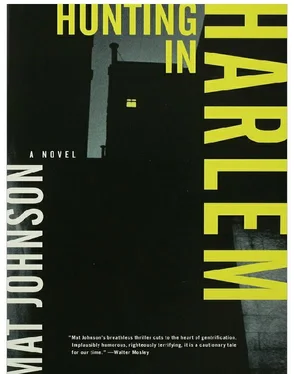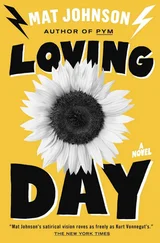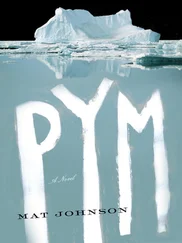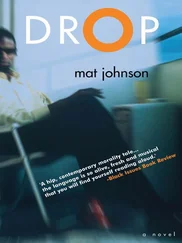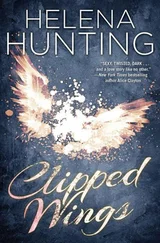Snowden rose from his seat, went over to help Bobby untangle himself. Back on his feet, Bobby turned for a second to say something to his attacker, but on getting a better look at Horus Manley turned quickly away again. Approaching the front of the room instead, Bobby pulled an orange envelope from his shirt pocket and placed it into Lester's hands. "A gesture of gratitude is all," Bobby said lightly, sitting down once more.
"Oh isn't that wonderful?" Lester asked, holding it up to look at it. Snowden thought the question was directed at him since he was the only one not taking part in the conversation, but then saw Lester repeat it staring down at the dog. "Wendell, isn't that just a lovely act of respect?" In response to this direct question, the wiener mutt pulled his jaws from his behind, slapped his tail to the concrete floor in a code Lester could apparently understand.
"The congressman is a great lover of art." Lester looked back up at the humans to explain. "Congressman Marks is a board member of several prominent Black Arts organizations. He is, you must understand, a man of grace, and as such has the ability to empathize with grace in all of its forms. So are there any last questions, comments, or offerings before we break? One more?" Lester rose a gold-circled finger to the room.
"I'm sorry," Snowden prefaced, "I couldn't find the answer in any of the handouts we've been given. But if we win, how long do we have to keep working for Horizon before we can sell the house and go back home?"
Snowden turned at the sound of Bobby gasping at the crassness of the inquiry, met the joyous grin on Horus's face past him at the misstep of openly expressing greed. Lester, for his part, seemed merely amused by the naiveté of the query.
"Mr. Snowden, listen to me. This isn't about cashing in on a boom market, it's about making something. Horizon does welfare-to-work training, offers all kinds of loan assistance, provides schooling for local children. In Harlem, the congressman spreads love like it was peanut butter. Horizon is his dream. Once you understand his vision, you won't want to leave. So trust me, the question is moot. He'll make you a believer too."
Snowden was not a believer. Snowden didn't believe in anything at all. This of course was an exaggeration; there were some heartfelt views that were integral to Snowden's understanding of reality: that the Los Angeles Clippers would never win a title, that most people in this world were not to be trusted, that he would sooner die than let himself be locked behind bars one night more. These tenets, however, Snowden invested in with such certainty that he saw no faith involved. To be a believer, in Snowden's mind, was to agree to be blind, to see only what you wanted to and ignore what contradicted it. It was to be a fool, or even worse to be like his father, a man who wasted his life raising banners no one wanted to read, following his conscience wherever it led him — even though that was usually jail.
Snowden's earliest memories of his dad were from the day of his father's first release from prison: the bullhorned speeches in Fair-mount Park and the crowd that yelled in response to them, so much food that casserole bowls sat on seats while people stood balancing paper plates in their hands. By his last release from a federal penitentiary twelve years later, the reception had been reduced to a bucket of drive-through chicken and Snowden's uncle in the front seat saying, "It's 1983 and nobody gives a damn about that shit no more, so just shut up and stop hogging all the white meat." The movement had moved on, without leaving a forwarding address behind. The only things Snowden Sr. could point to for all his sacrifice were the parts of him that were clearly missing. A bitter, drunken husk of a man whose life ended the moment his son finally had enough of his taunting and punched him as hard as he was asking for it. By the time Snowden made the mistake of swinging on his father, knocking him to the floor and into the coma that would eventually take him, there really wasn't much left of the man that hadn't already died anyway.
Having read the Horizon literature, Snowden understood that they were looking for someone a bit more evangelical and, to keep his bid competitive, he was willing to accommodate them — within reason. Snowden was willing to let faith guide him, as long as it didn't walk too far ahead. Searching within himself in the days after his orientation meeting, he found that there were several things he was agreeable to believing in. That he could win this Second Chance contest, for instance; that he could beat out the brute and the beanpole if he applied himself and stayed out of trouble; that if he won, he would take that promotion for just long enough to show his gratitude and then cash in and sell that one single-family brownstone for enough to buy a whole apartment building back in Philly, a big one. Snowden believed that in his Philly building he could live in poor man's luxury, survive off the rents into retirement, his only duties being to call the plumber and carry the trash to the side of the road.
The night after his initial Horizon orientation, spurred on by these first visions, Snowden vowed to rise early the following morning, grab his map of Harlem and set forth walking around this neighborhood to see the world it would be his job to champion, to do what he could to make his hopes a reality. Drifting to sleep when exhaustion finally overcame the excitement of it all, Snowden saw himself treading sidewalk in the days to follow, converting the unknown to the familiar one blister at a time, and loved the image of it all.
Oversleeping that following morning, Snowden rose with all his intentions in place. Walking down his building's stairs he saw Jifar, the little boy from the apartment directly below. The kid reminded him of his own youth, his own canned innocence, and Snowden chose that as a good omen. He felt good for a moment, descending those last few flights, then he walked out his front door only to have to make it through the handful of men who had decided his building's stoop was their new living room. It was eleven A.M. and they already had beer in hand, brown paper bags covering their forty bottles like condoms. The building door opened and they stopped talking and looked at Snowden like he insulted them just by leaving his home, like he should have climbed out his window and down the fire escape, jumped the ten feet from the metal to the pavement out of politeness. Snowden looked at their faces, looked quickly away again. There were blocks in Philly where you could get shot for meeting a hood's eyes. There were other blocks in Philly you could get just as dead if you didn't.
On 125th Street, Snowden wasted time at a book vendor's table before walking farther, shelled out the twenty for the new Bo Shareef book, Shuckin ' ' n ' Jivin Down Lenox, and managed not to admit to himself that in the next few days he was going to have time to read it.
135th between Lenox and Fifth was also known as Astor Row, one block of wooden, country-style houses that there'd been a blurred photo of in Horizon's pamphlet. The homes looked misplaced in the picture, architecture meant to be surrounded by barns, not bodegas, but it looked less surreal in person, mostly because at least a third of the houses were as devastated as the rest of the neighborhood. Some with soiled bedsheets hung in windows as curtains, others with no windows at all, just punctured holes where frame once held glass. A quarter of the way down the block, Snowden saw that one of the houses had been destroyed by fire, long enough ago that a treelike weed reached from the top floor up through the hole in the roof, but recently enough that a charred couch still sank into the mud on the front lawn. At the far end, trying to admire the absurd architecture, Snowden noticed a brown flash that poked out and disappeared again in an attic window of an abandoned building just past him. Aside from that one small lookout, the building was sealed, sheet metal nailed over every opening and covered in graffiti for good measure. Snowden tried to calm himself, ignore the sight, but was overtaken by fears of crackhead snipers and looked back up at the window. The head was there, staring down at him. The woman's hair shrieked from her scalp, her eyes as empty as the room behind her. Her face was negative space: the hole of her mouth, the hollow of her cheeks and sockets. The only thing that kept the woman from looking dead was that she was rocking back and forth, moaning.
Читать дальше
